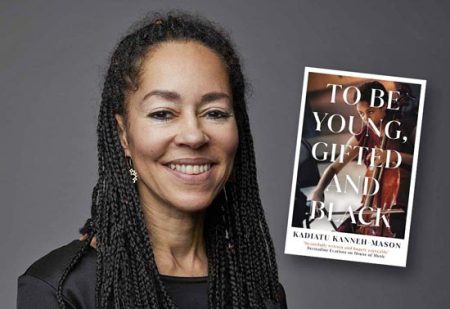A New Beginning for Some – Back to School for Others

|
| Priscilla R. Ndiaye, author of A Mother’s Cry: He’s Still My Child. |
The Parenting Corner…
By Priscilla R. Ndiaye, MSML
Innocently, at five years old, he excitedly placed his lunchbox into the bookbag. It was his first day “at the big school.” Realizing “Grandma’s Pooh” would be entering into a whole new world of exposures and eventually that innocence would be lost, I began to pray, asking God to keep him and all other children protected from evil. I thanked God for allowing the children to keep their focus, maintain self-control, and excel during their educational journey, thus becoming positive and contributing members of society.
What goes on in the mind of young children during their first day “at the big school?”
- I am afraid other children will beat me up
- I don’t know how to…
- I am excited, but I am scared
What are the responsibilities of the parents and what can they do to
make sure the children receive the best educational experience and give
the best of self?
The Bible makes it plain and simple. “Train up a child in the way
he/she shall go.” We, as parents are responsible for making sure our
children are nurtured. Make sure they eat healthy, get enough rest, and
receive medical check-ups. Teach them how to respect others—but most
important—respect self. It’s never too early to discuss values (what’s
important to them), goals (plans in life); and morals (things we just
don’t do).
-
Request a “Students’ Right and Parents’ Rights” handbook from your
child’s school. Read it and ask questions of what you may not understand
clearly. Talk with your child(ren) about the information. - Make a commitment to attend parent/teacher conference (PTO/PTA), and school board meetings.
-
Take the time to talk with your child daily to allow them to express
concerns, problems, and successes. Keep the communication lines open!
You will be surprised by some of the things you learn. -
Take the time to help with homework, read a book with them. These
types of involvement are all investments into your child’s future. Don’t
expect the educators to do it all.
Mrs. Kimberly Robinson, MSW, is a social worker with the Asheville City
School system, who offers additional words of wisdom through her
“Back-to-school tips on beginning a GREAT school year.”
“Summer break has come to an end and the 2011-12 school year has
begun,” she says. “Mixed emotions are most likely amongst us; whether it
is the ease of not having to purchase extra groceries for those summer
appetites or purchasing everything from school supplies to school
attire.
If you are wondering how to get back on schedule, consider the
following tips to help you and your child start the school year off
right.
The school system as a whole can be a confusing and intimidating maze.
Therefore, maintaining good communication with your child is fundamental
to the success of your child’s education. Whether you are parenting a
toddler or a teenager, good communication is necessary to building
self-esteem as well as obtaining mutual respect.
Another essential step is to make sure you establish a daily routine
with your child. This can begin with getting up on time in the morning
and making sure your child gets breakfast either at home or school.
Setting consistent homework, dinner, bath, and bed times are just as
important. This promotes responsibility and discipline. Once you have a
routine in place, your family will be able to start the new school year
on a bright and more organized note.
Parent-teacher relationships are just as important. If you are unable
to go to the school to talk with your child’s teacher, phone contact is
the next step. Introduce yourself and let the teacher know that you are
there to support both the teacher and your child.
Maintain communication with the teacher and never assume or go without
knowing the answer. If there is something you are not sure of, just ask.
Teachers may not always have answers to your questions; in that case,
other staff members may be able to assist you. Utilize the various
school personnel who are at the schools to support our teachers,
students and families. The school social workers and school counselors
may be able to provide you and your family with resources and
information that is not familiar to you.
Remember, parenting can be more enjoyable when good communication and
positive parent-child relationships have been established.
I welcome your comments, questions, and useful information/resources. Send email to: [email protected].








